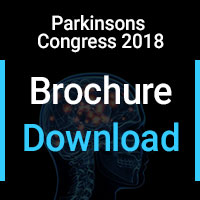
Sebastian Knöbel
Miltenyi Biotec GmbH, Germany
Title: Towards a cell therapy for Parkinson’s Disease: Fully integrated closed system expansion and differentiation of pluripotent stem cells to mesencephalic dopaminergic progenitor cells
Biography
Biography: Sebastian Knöbel
Abstract
Pluripotent stem cell (PSC) derived cell products hold great promise for future clinical use in a variety of indications like type i diabetes, cardiomyopathies, macular dystrophies and Parkinson’s disease. For Parkinson’s disease trials, grafted human fetal tissue has indicated utility of tissue or cell replacement therapy. However, the limited availability and ethical implications connected to using primary fetal material have inspired pluripotent stem cell (PSC) based approaches. In vitro differentiated mesencephalic dopaminergic (mesDA) progenitor cells grafted into the striatum have proven to, revert motor symptoms in pre-clinical animal models of Parkinson’s disease compensating for the loss of dopamine producing cells in the substantia nigra. Raising regulatory requirements for such advanced-therapy medicinal products (ATMPs) imply the need for standardized reagents and highly reproducible manufacturing procedures. Automation of PSC expansion, differentiation, and potential product optimization through cell sorting may contribute to successful and cost-effective innovative therapies. Using the versatile and integrated GMP cell processing platform, CliniMACS Prodigy®, we previously developed a cultivation and expansion workflow for PSCs. Now we have adapted the lab protocol for the differentiation to mesDA progenitor cells and have transferred it onto the device, for a medium-scale prototype manufacturing process within the closed system. Extrapolating the cell numbers retrieved from the protoype process would correspond to 150–250 patient doses per manufactured batch. To characterize the identity of the resulting progenitors, we have designed a concise marker panel for flow cytometry-based quality control (QC). Taken together, we have developed a method for adherent, closed-system cultivation of PSCs and differentiation to dopaminergic progenitor cells in combination with comprehensive QC assays.

